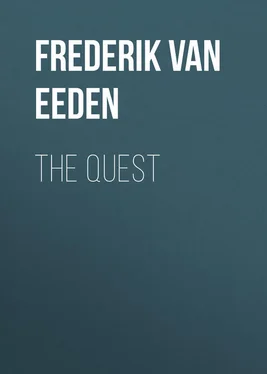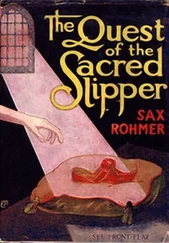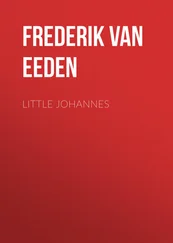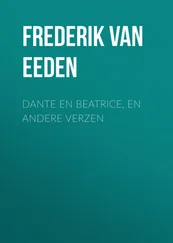Frederik Eeden - The Quest
Здесь есть возможность читать онлайн «Frederik Eeden - The Quest» — ознакомительный отрывок электронной книги совершенно бесплатно, а после прочтения отрывка купить полную версию. В некоторых случаях можно слушать аудио, скачать через торрент в формате fb2 и присутствует краткое содержание. Жанр: История, foreign_antique, foreign_prose, на английском языке. Описание произведения, (предисловие) а так же отзывы посетителей доступны на портале библиотеки ЛибКат.
- Название:The Quest
- Автор:
- Жанр:
- Год:неизвестен
- ISBN:нет данных
- Рейтинг книги:4 / 5. Голосов: 1
-
Избранное:Добавить в избранное
- Отзывы:
-
Ваша оценка:
- 80
- 1
- 2
- 3
- 4
- 5
The Quest: краткое содержание, описание и аннотация
Предлагаем к чтению аннотацию, описание, краткое содержание или предисловие (зависит от того, что написал сам автор книги «The Quest»). Если вы не нашли необходимую информацию о книге — напишите в комментариях, мы постараемся отыскать её.
The Quest — читать онлайн ознакомительный отрывок
Ниже представлен текст книги, разбитый по страницам. Система сохранения места последней прочитанной страницы, позволяет с удобством читать онлайн бесплатно книгу «The Quest», без необходимости каждый раз заново искать на чём Вы остановились. Поставьте закладку, и сможете в любой момент перейти на страницу, на которой закончили чтение.
Интервал:
Закладка:
Then they came to a quiet neighborhood, where stood a large house with grey, gloomy windows. It looked severe and uninviting. It was very quiet within, and there came to Johannes a mingling of strange, pungent odors – a damp, cellar-like smell being the most perceptible. In a room, full of odd-looking instruments, sat a solitary man. He was surrounded with books, and glass and copper articles – all of them unfamiliar to Johannes. A stray sunbeam entered the room, passed on over his head, and sparkled on the flasks filled with pretty, tinted particles. The man was looking intently through a copper tube, and did not look up.
As Johannes came nearer, he heard him murmur, "Wistik! Wistik!"
Beside the man, on a long, black bench, lay something white and downy. What it was Johannes could not clearly see.
"Good morning, doctor!" said Pluizer. But still the doctor did not look up.
Then Johannes was terrified, for the white object at which he was looking so intently, began all at once to struggle convulsively. What he had seen was the downy, white breast of a little rabbit. Its head, with the twitching nostrils, was held backward by pinching clamps of iron, and the four little feet were tightly bound along its body. The hopeless effort to free himself was soon over, and the little creature lay still again; the only sign of life being the rapid movement of the blood-stained throat.
Johannes looked at the round, gentle eyes – so wide open with helpless anguish, and it seemed to him that he recognized them. Was not this the soft little body against which he had rested that first, blissful, elf-land night? Old remembrances came thronging over him. He flew to the little creature.
"Wait, wait! Poor Bunnie, I will help you!" And he hurried to untie the cords which were cutting into the tender little feet.
But his hands were seized in a tight grip, and a shrill laugh rang in his ears.
"What does this mean, Johannes? Are you still so childish? What must the doctor think of you?"
"What does the boy want? Why is he here?" asked the doctor, amazed.
"He wants to be a man, and so I brought him to you; but he is still rather young and childish. This is not the way to find what you are seeking, Johannes!"
"No, this is not the way," said the doctor.
"Doctor, let that rabbit loose!"
But Pluizer clutched both his hands, and squeezed them painfully.
"What was our agreement, Jackanapes?" he hissed in his ear. "We were to seek, were we not? We are not in the dunes here, with Windekind, and with stupid animals. We should be men – men, do you understand? If you wish to remain a child – if you are not strong enough to help me – I will send you out of the way. Then you may seek – all by yourself!"
Johannes believed him and said no more. He determined to be strong. So he shut his eyes, that he might not see the rabbit.
"Good boy!" said the doctor. "You appear somewhat tender-hearted for making a beginning. It truly is rather a sad sight the first time. I never behold it willingly myself, and avoid it as much as possible. Yet it is indispensable; and you must understand that we are men, and not animals – that the welfare of mankind and of science is of more importance than the life of a few rabbits."
"Hear!" said Pluizer. "Science and mankind."
"The man of science," continued the doctor, "stands higher than all other men, and so he should overcome the little tendernesses which the normal man feels, for that great interest – Science. Would you like to be such a man? Was that your vocation, my boy?"
Johannes hesitated. He did not exactly know what a vocation was – no more than did the May-bug.
Said he, "I want to find the book that Wistik spoke of."
The doctor looked surprised and asked, "Wistik?"
Pluizer said quickly, "Indeed he wants to be such a man, Doctor! I know he does. He seeks the highest wisdom. He wishes to grasp the very essence of things."
Johannes nodded a "Yes!" So far as he understood, that was his aim.
"You must be strong, then, Johannes – not weak and softhearted. Then I will help you. But remember; all or nothing."
And with trembling fingers Johannes helped to retie the loosened cords around the little feet of the rabbit.
XI
"Now, we shall see," said Pluizer, "if I cannot show you just as fine sights as Windekind can."
And when they had bidden the doctor good-by – promising to return soon, he guided Johannes into every nook and corner of the great town. He showed him how the great monster lived, breathed, and fed itself; how it consumed, and again renewed itself.
But he was partial to the slums and alleys, where the people were packed together – where everything was gloomy and grimy, and the air black and close.
He took him into one of the large buildings from which Johannes had seen the smoke ascending that first day.
A deafening roar pervaded the place – everywhere a rattling, clanking, pounding, and resounding. Great wheels revolved, and long belts whizzed in rapid undulations. The walls and floors were black, the windows broken or covered with dust. The mighty chimneys rose high above the blackened building, belching great columns of curling smoke. In that turmoil of wheels and machinery Johannes saw numbers of pale-faced men with blackened hands and clothing, silently and ceaselessly working.
"Who are they?" asked Johannes.
"Wheels – more wheels," laughed Pluizer, "or human beings – as you choose. What they are doing there they do, day in – day out. And one can be human in that way, also – after a fashion."
They went on into dirty, narrow streets, where the little strip of blue sky looked only a finger's width; and even then was clouded by the clothes hung out to dry. It swarmed with people there. They jostled one another, shouted, laughed, and sometimes sang. In the houses the rooms were so small, so dark and damp, that Johannes hardly dared to breathe. He saw ragged children creeping over the bare floors; and young girls, with disheveled hair, humming melodies to thin, pale nurslings. He heard quarreling and scolding, and all the faces around him were tired, dull, or indifferent.
Johannes' heart was wrung with pain. It was not akin to his earlier grief – he was ashamed of that.
"Pluizer," he asked, "have these people always lived here – so dreary and so wretched? While I…" He dared not go on.
"Certainly; and that is fortunate. Indeed, their life is not so very dreary and wretched. They are inured to this, and know nothing better. They are dull, careless cattle. Do you see those two women there – sitting in front of their door? They look as contentedly over the foul street as you used to look upon your dunes. There is no need for you to cry over these people. You might as well cry about the moles that never see the daylight."
Johannes did not know what to reply, nor did he know why he felt so sad.
In the midst of the clamorous pushing and rushing he still saw the pale, hollow-eyed man, striding with noiseless steps.
"He is a good man after all. Do you not think so?" said Pluizer, "to take the people away from this? But even here they are afraid of him."
When night fell, and hundreds of lamps flickered in the wind – casting long, wavering lights over the black water, they passed through the silent streets. The tall old houses looked tired – as if leaning against one another in sleep. Most of them had closed their eyes; but here and there a window still sent out a faint, yellow glimmer.
Pluizer told Johannes long stories about those who dwelt behind them – of the pains that were there endured, and of the struggles that took place there between misery and love of life. He did not spare him, but selected the gloomiest, the lowest, and most trying; and grinned with enjoyment when Johannes grew pale and silent at his shocking tales.
Читать дальшеИнтервал:
Закладка:
Похожие книги на «The Quest»
Представляем Вашему вниманию похожие книги на «The Quest» списком для выбора. Мы отобрали схожую по названию и смыслу литературу в надежде предоставить читателям больше вариантов отыскать новые, интересные, ещё непрочитанные произведения.
Обсуждение, отзывы о книге «The Quest» и просто собственные мнения читателей. Оставьте ваши комментарии, напишите, что Вы думаете о произведении, его смысле или главных героях. Укажите что конкретно понравилось, а что нет, и почему Вы так считаете.












